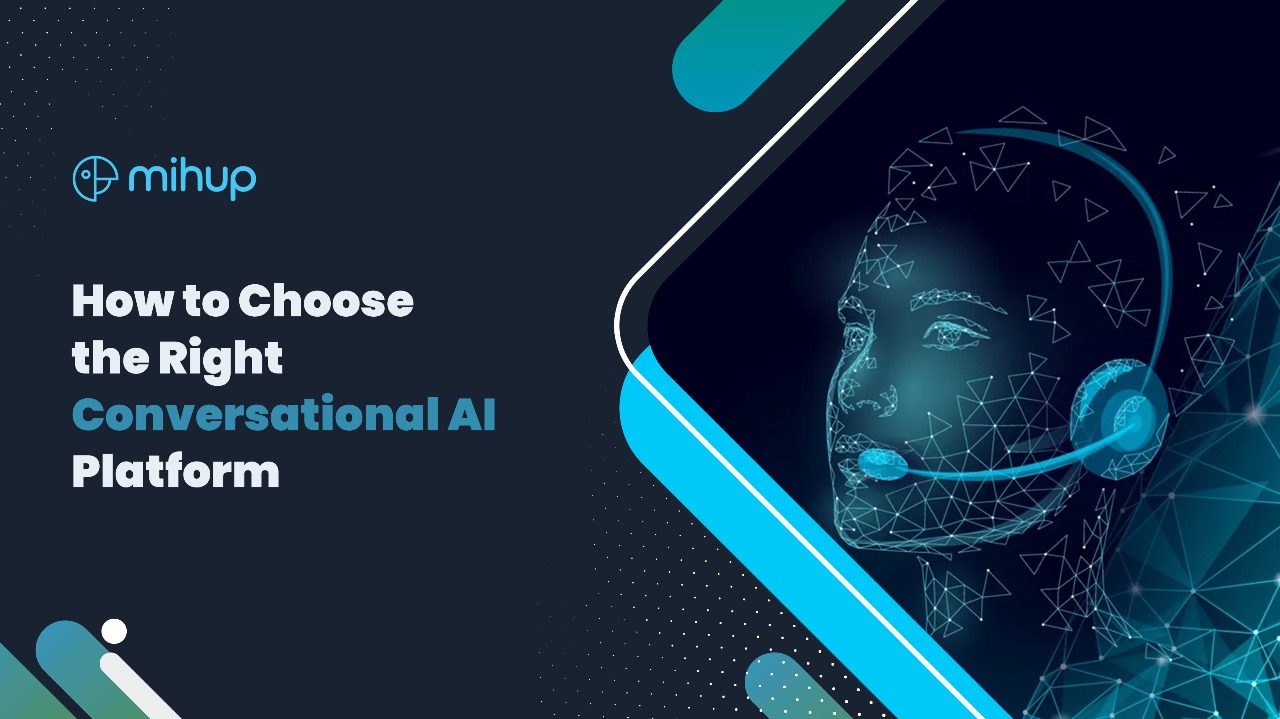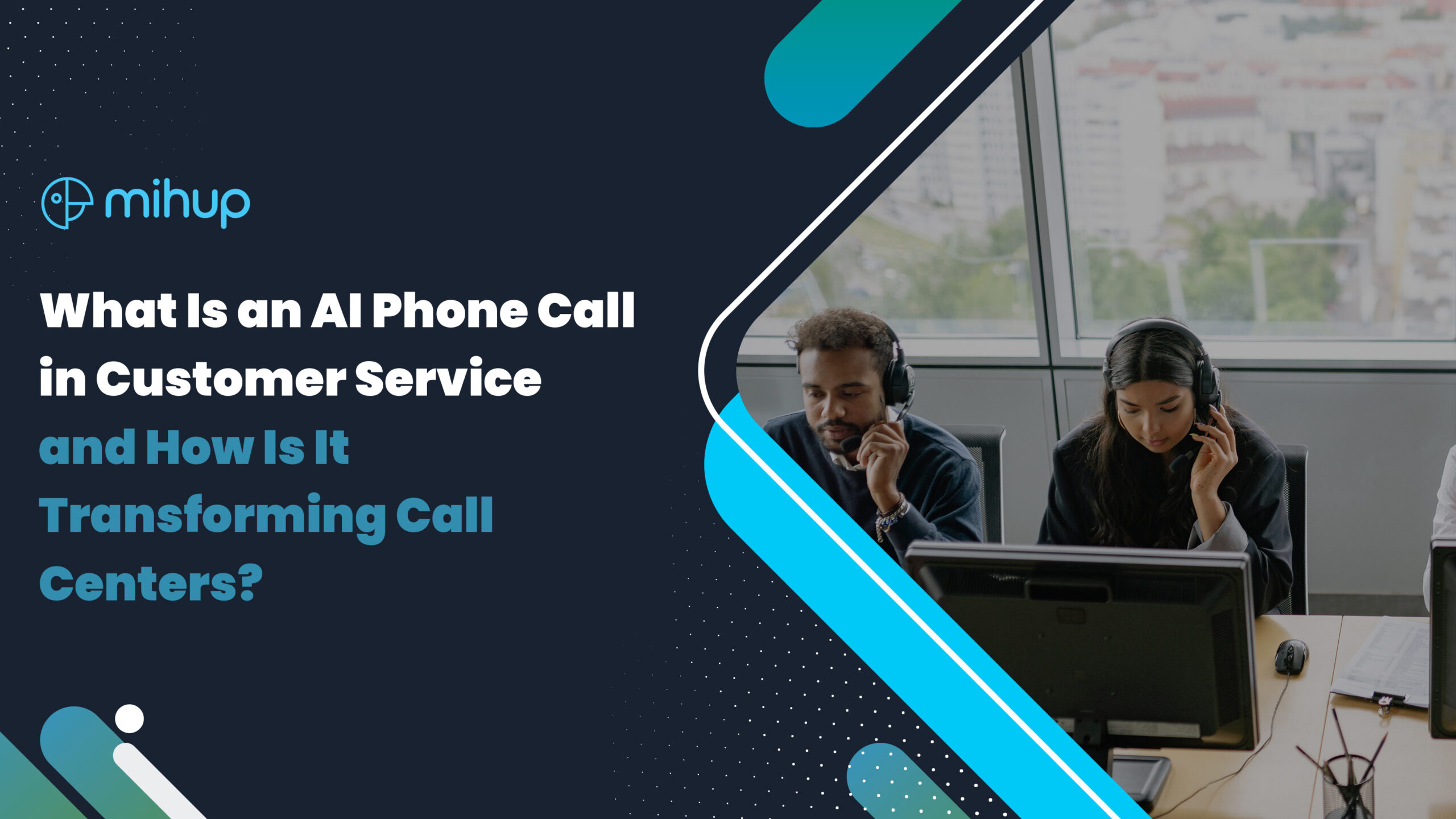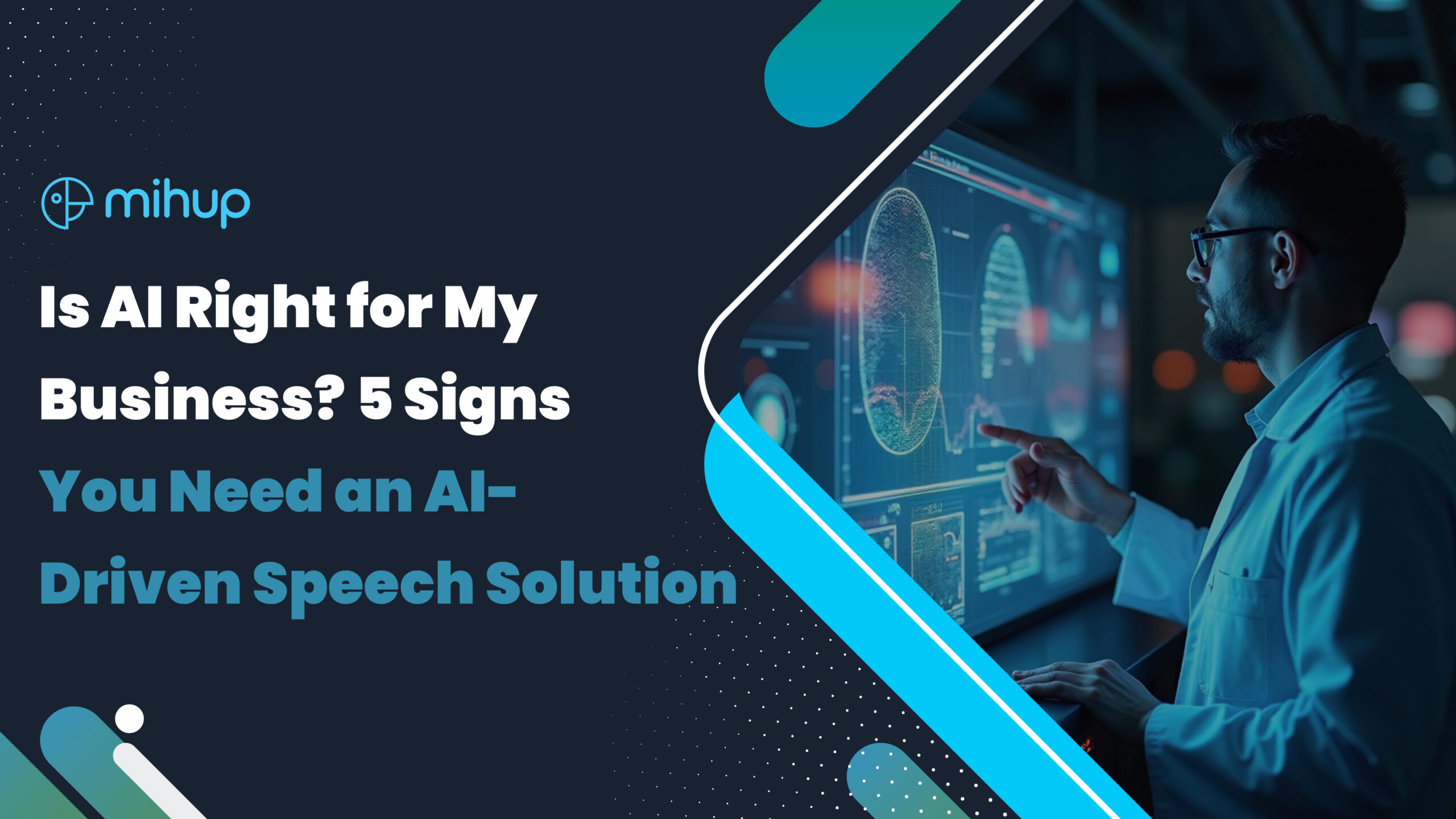Conversational AI has been an important tool in modern technology, mainly serving virtual assistants, chatbots, and customer service systems. They provide a better experience for users by answering their queries, smoothing procedures, and enhancing customer interactions. It uses techniques like Natural Language Processing to understand what we say, and then generates human-like responses. This technology powers chatbots, virtual assistants like Siri, and voice assistants in our homes and cars, making our interactions with technology more natural and intuitive.
The conversational AI market was worth $4.2 billion in 2019, but it will be projected to reach $32.62 billion by the year 2030. A major reason for this big leap is increased dependency on the tools of communication using AI. However, each platform must be chosen after carefully understanding what needs have to be catered to in business and what their features are.
This guide breaks down the basics of conversational AI and offers practical tips for choosing the platform that best suits your needs. It also explores how conversational intelligence can further enhance AI capabilities.
What is a Conversational AI Platform?
A conversational AI platform enables human-like communication through tools like chatbots and virtual assistants. Using technologies like machine learning (ML) and natural language processing (NLP), these platforms interpret, process, and respond to text or speech inputs in a way that feels natural and contextually relevant.
Key Components of Conversational AI
Machine Learning (ML): ML algorithms allow the system to get better over time, finding patterns, being adaptive, and making highly accurate predictions.
Natural Language Processing: NLP is the transformation of human language into a form that machines can understand to generate appropriate responses. This includes input analysis, comprehension of context, output generation, along with continuous learning.
Feedback Loops: In integration with ML and NLP, the feedback loops enable the system to learn from the interactions, resulting in perpetual performance improvement.
Benefits of Using Conversational AI
1. Increased Customer Satisfaction
Conversational AI automates repetitive tasks like FAQs and appointment bookings, freeing support agents for complex issues. It operates 24/7, ensuring customers get immediate, consistent responses, enhancing trust and loyalty.
2. Cost Efficiency
AI platforms reduce operational costs by automating routine interactions, such as order tracking or query resolution. With chatbots handling up to 30% of live chat queries and 80% of repetitive tasks, businesses save resources and focus on strategic priorities.
3. Revenue Growth
By assisting customers in their purchasing journey and analyzing behavior, AI drives higher conversion rates and enables upselling opportunities. Personalized suggestions, like recommending accessories during a sale, enhance the customer experience and boost revenue.
4. Scalability
Conversational AI handles thousands of interactions simultaneously, making it ideal for peak seasons or growing businesses. Its ability to scale ensures consistent service without requiring additional staff, supporting long-term business growth.
Top 5 Features to Consider When Selecting a Conversational AI Platform
Choosing the right conversational AI platform is crucial for optimizing customer interactions and improving business efficiency. Here are the top five features to prioritize:
-
Advanced AI and NLP Capabilities
At the core of any conversational AI platform is its ability to understand and process human interactions effectively.
- Speech Recognition: The platform should excel in converting spoken language into text for industries where voice commands are prevalent, such as healthcare or automotive. For example, Google Dialogflow offers advanced speech-to-text functionalities, enabling seamless voice-based interactions.
- Sentiment Analysis: This feature helps identify customer emotions and adapt responses accordingly. For instance, detecting frustration can prompt the system to escalate the issue to a human agent or offer empathetic resolutions like discounts or apologies.
- Contextual Understanding: An AI platform with strong NLP capabilities understands the context of a conversation, ensuring accurate responses. For example, if a returning customer asks, “What’s the status of my order?”, the platform retrieves relevant order details without requiring additional inputs.
-
User-Friendly Interface
A straightforward interface ensures the platform can be used effectively by non-technical teams.
- No-Code Tools: Platforms like Google Dialogflow provide drag-and-drop interfaces to build and manage chatbots, making them accessible for marketing and customer service teams without coding expertise.
- Low-Code Platforms: For businesses requiring advanced customization, platforms like IBM Watson Assistant offer low-code solutions that simplify complex bot configurations. Pre-built templates further speed up deployment and allow for quick adjustments.
Example: A retail business can use no-code tools to create a basic FAQ bot, while low-code features allow customization for advanced workflows, such as integrating product recommendation algorithms.
-
Omnichannel Support
Customers interact with businesses across multiple channels, and the platform must ensure seamless communication.
- Web and Mobile App Integration: Platforms like Dialpad AI allow businesses to deploy conversational AI across websites and mobile apps, ensuring a unified user experience.
- Social Media and Messaging App Compatibility: Integration with apps like Facebook Messenger, WhatsApp, and Instagram ensures businesses can engage customers where they are most active.
- Smooth Human Handoff: Platforms should support transitioning conversations from AI to human agents without losing context. For instance, a chatbot on WhatsApp might forward complex queries to a live agent, providing the agent with the conversation history.
-
Integration with Existing Tools
Effective integration capabilities are essential for streamlining workflows and enhancing productivity.
- CRM Integration: A platform that integrates with CRMs like Salesforce allows agents to access customer histories instantly, improving personalization and efficiency.
- Analytics and BI Tool Integration: Connecting with tools like Tableau or Google Analytics enables real-time tracking of customer interactions and performance metrics.
Example: Mihup’s interaction analytics platform provides seamless data integration, offering actionable insights and process improvements that go beyond basic chatbot functions.
-
Data Analytics and Insights
A conversational AI platform should offer robust analytics for informed decision-making.
- User Behavior Insights: Analyzing customer interactions reveals patterns, such as frequently asked questions or common complaints. These insights can help refine chatbot responses and optimize product offerings.
- Conversation Trends: By identifying recurring issues, businesses can proactively address pain points. For instance, if a significant number of users inquire about delivery times, it may signal a need for clearer communication on shipping policies.
Example: Platforms like Mihup provide advanced dashboards that combine interaction data with BI tools to drive smarter strategies and uncover new opportunities for improvement.
Actionable Tips
- Start Small: Begin with platforms offering no-code tools to develop basic bots, and scale up as your needs evolve.
- Focus on Omnichannel: Ensure the platform supports all customer touchpoints for consistent experiences.
- Leverage Analytics: Use insights to improve chatbot responses and uncover operational inefficiencies.
- Test Usability: Request demos and evaluate ease of integration with your current systems.
- Plan for Growth: Choose a platform that can scale with your business needs and adapt to emerging technologies.
By considering these features, businesses can select a conversational AI platform that not only meets their immediate needs but also supports long-term growth and innovation.
Steps to Choose the Right Platform
- Define Your Business Objectives: Clarify what problems you’re trying to solve and what goals you want to reach with conversational AI.
- Assess Key Features: Prioritize platforms that align with your needs and offer features relevant to your industry.
- Consider Scalability: Choose a platform that will grow with your business, handling increasing user demands and new technologies.
- Evaluate Integration Capabilities: Make sure the platform integrates well with your current tools and workflows.
- Test Usability: Request a demo or trial period to assess ease of use, implementation process, and overall performance.
Top Conversational AI Platforms
- 1. Google Dialogflow: Google Dialogflow is celebrated for its advanced NLP capabilities and seamless Google Cloud integration. It supports multiple languages, making it ideal for businesses with global reach. Its high customizability allows tailored chatbot solutions for unique business needs.
- 2. Dialpad AI: Dialpad AI specializes in real-time transcription and sentiment analysis, enhancing customer service and team collaboration. It’s particularly effective for industries like telecommunications and customer support, offering AI-driven chatbots and human-like assistance.
- 3. IBM Watson Assistant: IBM Watson Assistant delivers enterprise-grade capabilities with extensive customization. Perfect for industries like healthcare and finance, it integrates seamlessly with existing systems and offers robust AI insights and secure solutions at scale.
- 4. Microsoft Bot Framework: Designed for businesses within the Microsoft ecosystem, this framework integrates with Teams, Azure, and Dynamics. It’s a versatile tool for creating advanced bots suited for customer service, internal communication, and more.
Actionable Insights for Implementing Conversational AI
- Start Small, Scale Gradually:
Begin with simple tasks and use cases, such as answering FAQs or handling booking requests. Once you see positive results, gradually expand the scope of your AI interactions to include more complex processes like customer support or sales. - Leverage Data for Continuous Improvement:
Use the analytics capabilities of conversational AI to continually refine your approach. Track user behavior, monitor trends, and adjust workflows to improve the customer experience over time. - Optimize for Personalization:
Personalization is key to improving customer engagement. Use AI to collect data about your customers, such as past purchases, preferences, and browsing history, and deliver customized experiences that resonate with individual users. - Integrate with Human Support:
AI should complement, not replace, human support. Ensure smooth handoffs to live agents for more complex issues, ensuring customers don’t feel like they’re talking to a machine the entire time. - Monitor and Adjust AI Performance:
Regularly assess the performance of your AI platform to identify areas of improvement. Whether it’s improving NLP accuracy or adjusting the AI’s tone, ongoing monitoring ensures the system remains effective and aligned with your business goals.
By carefully selecting the right conversational AI platform and leveraging these insights, businesses can improve customer satisfaction, drive revenue growth, and scale efficiently without compromising quality.
But, what to do when just conversational AI isnt enough? That’s when Conversation Analytics comes into place with Mihup’s Interaction Analytics.
Mihup Interaction Analytics
Mihup offers an interaction analytics platform that specializes in both inbound and outbound calls. It uses advanced NLP and machine learning algorithms to analyze 100% of calls and provide insights across different processes, such as customer support, collections (for example, policy renewals and dues), and sales.
One of the strongest suits of Mihup is the ability to automate the process that used to be quality-centric and shift the focus to more advanced insights that improve sales conversion, smoothen the processes, and increase the overall performance of agents.
Mihup’s offering businesses 100% of the data and in-depth insights through its user-friendly dashboard and Conersation Analytics tools.
From Conversational AI to Conversational Intelligence
While the AI of conversation emulates interactions characteristic of human beings, conversational intelligence goes beyond understanding what is intended and meant in conversations and provides actionable insights to drive improvement in business.
Conclusion
The right conversational AI platform is central to improved customer engagement, optimized operations, and increased business outcomes. Focusing on your unique needs and assessing the features of each platform will empower you to make a guided decision that supports your long-term goals. It further integrates conversational intelligence to ensure that your solution never stops evolving, unlocking new opportunities for innovation and success.





